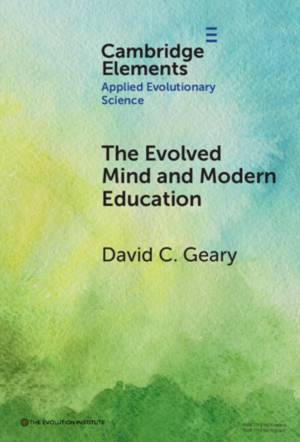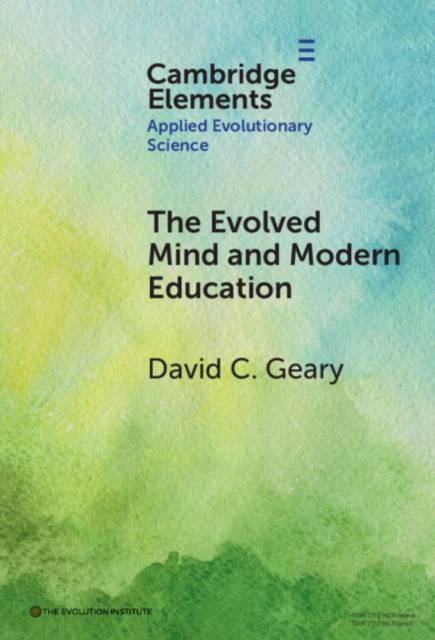
- Afhalen na 1 uur in een winkel met voorraad
- Gratis thuislevering in België vanaf € 30
- Ruim aanbod met 7 miljoen producten
- Afhalen na 1 uur in een winkel met voorraad
- Gratis thuislevering in België vanaf € 30
- Ruim aanbod met 7 miljoen producten
Zoeken
€ 104,95
+ 209 punten
Uitvoering
Omschrijving
Humans have an extraordinary ability to create evolutionarily novel knowledge, such as writing systems and mathematics. This accumulated knowledge over several millennia supports large, dynamic societies that now require children to learn this novel knowledge in educational settings. This Element provides a framework for understanding the evolution of the brain systems that enable innovation and novel learning and how these systems can act on human cognitive universals, such as language, to create evolutionarily novel abilities, such as reading and writing. Critical features of these networks include the top-down control of attention, which is central to the formation of evolutionarily novel abilities, as well as self-awareness and mental time travel that support academic self-concepts and the generation of long-term educational goals. The basics of this framework are reviewed and updated here, as are implications for instructional practices.
Specificaties
Betrokkenen
- Auteur(s):
- Uitgeverij:
Inhoud
- Aantal bladzijden:
- 98
- Taal:
- Engels
- Reeks:
Eigenschappen
- Productcode (EAN):
- 9781009454841
- Verschijningsdatum:
- 23/05/2024
- Uitvoering:
- Hardcover
- Formaat:
- Genaaid
- Afmetingen:
- 152 mm x 229 mm
- Gewicht:
- 303 g

Alleen bij Standaard Boekhandel
+ 209 punten op je klantenkaart van Standaard Boekhandel
Beoordelingen
We publiceren alleen reviews die voldoen aan de voorwaarden voor reviews. Bekijk onze voorwaarden voor reviews.











